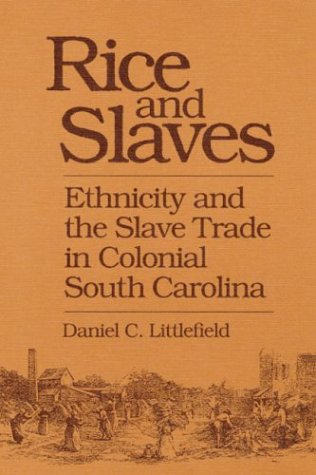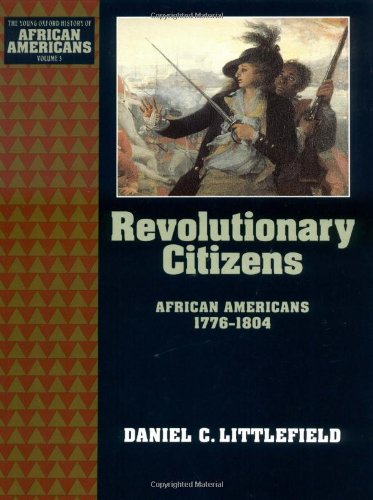Background
Littlefield, Daniel Curtis Son of Elroy Littlefield and Ophelia Marie Williams.


(A study of how the combined efforts of the Africans and E...)
A study of how the combined efforts of the Africans and Europeans molded American civilization.
http://www.amazon.com/gp/product/0252062140/?tag=2022091-20

(It is not entirely clear who provoked the British musket ...)
It is not entirely clear who provoked the British musket fire at the Custom House in Boston on March 5, 1770, but the volley wounded eight men and killed five. Crispus Attucks, a tall, young mulatto, was one of the men who died in the confrontation. He would later become a revolutionary hero, celebrated as "the first to defy, and the first to die" in the cause of colonial liberty that went down in history as the Boston Massacre. When the American Revolution broke out six years later, African Americans like Crispus Attucks were among the first to rally to Patriot banners. As they fought to free their country, they also fought to free themselves from slavery. This nation's fight for independence from Great Britain laid bare the contradictions between slavery and freedom for African Americans. It was a contradiction many resolved to settle. Some joined with other colonists in striking direct blows for liberty. Others, meanwhile, heard the pleas for loyalty to the British crown, and with the promise of emancipation as their reward, remained faithful to the old order only to see it vanish before them. But whether in the poems of Phillis Wheatley, the legal action of Quok Walker, or the efforts of businessman Paul Cuffe, Americans of African descent helped define what it meant to be revolutionary citizens. By 1804, however, slavery seized a new lease on life. "King Cotton" demanded black slaves and produced a generation born into servitude. Unlike their immigrant forefathers, these African Americans had no memory of a homeland and depended upon stories handed down around fireplaces, campfires, and bedsides for their knowledge of their ancestors. They might hear of people who had fought with the British, or against them, or of people who had gone overseas or run away and formed communities of their own. Unfortunately, they would have few opportunities for such heroics in the 19th century. In Revolutionary Citizens, author Daniel C. Littlefield brings to life African-American heroes and heroines who both shaped and were shaped by the times in which they lived. From their embrace of religion to the formation of independent institutions such as the Free African Union Society, African Americans inserted themselves into the social and cultural life of the country. Ever aware of the implication of freedom, they spread word of their own efforts throughout the Americas.
http://www.amazon.com/gp/product/0195087151/?tag=2022091-20
Littlefield, Daniel Curtis Son of Elroy Littlefield and Ophelia Marie Williams.
AB, Sacramento State University, 1964. Master of Arts, Johns Hopkins University, 1973. Doctor of Philosophy, Johns Hopkins University, 1977.
Instructor York College City University of New York, New York City, 1973-1977. Assistant professor Virginia Commonwealth University, Richmond, 1977-1978. Associate professor Louisiana State University, Baton Rouge, 1978-1988.
Professor University Illinois-Urbana, Urbana-Champaign, 1988-1999. Carolina professor University South Carolina, Columbia, since 1999. Director Institute African American Research, University South Carolina, since 2006.
Council Omohandro Institute Early American History and Culture, Williamsburg, Virginia, 1996-1999.
(It is not entirely clear who provoked the British musket ...)
(A study of how the combined efforts of the Africans and E...)
Member American History Association, Southern History Association (member executive council 1998-2000), South Caroliniana Society, Organization American Historians, Society Historians Early American Republic (advisory council member, since 2010).
Married Valinda Whitted, June 23, 1990.
